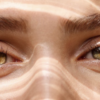Science Behind Pollution-Induced Skin Aging How to Prevent It
Science Behind Pollution-Induced Skin Aging and How to Prevent It In today’s urban landscapes, the detrimental effects of air Pollution extend beyond respiratory health to impact our skin profoundly. This article explores the scientific mechanisms through which pollution accelerates skin aging and provides actionable strategies to mitigate these effects Pollution.

Understanding Pollution-Induced Skin Aging
Air pollution comprises particulate matter (PM), volatile organic compounds (VOCs), polycyclic aromatic hydrocarbons (PAHs), and ozone (O3), among other harmful substances. These pollutants penetrate the skin barrier, triggering oxidative stress and inflammation.
Mechanisms of Pollution-Induced Skin Aging
- Oxidative Stress
Pollutants generate free radicals upon contact with the skin. Free radicals are unstable molecules that attack healthy cells, including collagen and elastin fibers crucial for skin elasticity and firmness. This process leads to premature wrinkles, fine lines, and sagging skin.
Keywords: oxidative stress, free radicals, collagen, elastin fibers, premature aging
- Inflammation
Particulate matter and PAHs induce inflammatory responses in the skin, activating immune cells like macrophages. Chronic inflammation accelerates skin aging by breaking down collagen and impairing the skin’s natural repair mechanisms.
Keywords: inflammation, immune response, macrophages, collagen breakdown
- DNA Damage
UV radiation combined with pollutants can cause DNA mutations in skin cells. This damage disrupts cellular functions and contributes to skin aging and increased risk of skin cancers.
Keywords: DNA damage, UV radiation, mutations, cellular functions
Strategies to Prevent Pollution-Induced Skin Aging
1. Daily Cleansing Routine
Start and end your day with a thorough cleansing routine to remove pollutants accumulated on the skin’s surface. Use a gentle cleanser suitable for your skin type to avoid stripping natural oils.
Keywords: cleansing routine, gentle cleanser, pollutants removal, skin surface
2. Antioxidant Protection
Incorporate antioxidants into your skincare regimen to neutralize free radicals and mitigate oxidative stress. Vitamin C, E, and coenzyme Q10 are effective antioxidants that repair and protect skin cells.
Keywords: antioxidant protection, vitamin C, vitamin E, coenzyme Q10, free radicals
3. Barrier Enhancement
Use moisturizers and serums containing ceramides and fatty acids to strengthen the skin barrier. A robust barrier prevents pollutants from penetrating deep into the skin layers and causing damage.
Keywords: barrier enhancement, moisturizers, ceramides, fatty acids, skin barrier
4. Sunscreen Application
Apply sunscreen daily to shield the skin from UV radiation, which synergistically exacerbates pollution-induced skin damage. Opt for broad-spectrum sunscreen with SPF 30 or higher.
Keywords: sunscreen application, UV protection, broad-spectrum, SPF 30
5. Detoxifying Masks
Weekly use of detoxifying masks containing ingredients like charcoal or clay helps draw out pollutants and impurities from the skin. This deep cleansing reduces oxidative stress and inflammation.
Keywords: detoxifying masks, charcoal, clay, pollutants removal, deep cleansing
6. Nutritious Diet
Consume a diet rich in antioxidants, vitamins (A, C, E), and omega-3 fatty acids to support skin health from within. These nutrients boost collagen production and repair cellular damage caused by pollutants.
Keywords: nutritious diet, antioxidants, vitamins, omega-3 fatty acids, collagen production
7. Hydration
Keep skin hydrated by drinking plenty of water and using hydrating skincare products. Well-hydrated skin maintains elasticity and resilience against environmental stressors like pollution.
Keywords: hydration, hydrating skincare, water intake, skin resilience
8. Air Quality Improvement
Enhance indoor air quality by using air purifiers and maintaining proper ventilation. Minimizing indoor pollutants reduces overall exposure and supports skin health.
Keywords: air quality improvement, air purifiers, ventilation, indoor pollutants
Detox Your Skin and Hair from Pollution Exposure
Conclusion
Understanding the science behind pollution-induced skin aging empowers us to take proactive steps in preserving skin health. By implementing a comprehensive skincare routine that includes cleansing, antioxidant protection, and barrier enhancement, we can mitigate the damaging effects of pollutants. Regular use of sunscreen, detoxifying masks, and a balanced diet further supports skin resilience and minimizes premature aging. Together, these strategies enable us to maintain a youthful and radiant complexion despite the challenges posed by urban pollution.
Keywords: pollution-induced skin aging, skincare routine, antioxidant protection, UV protection







Leave a reply